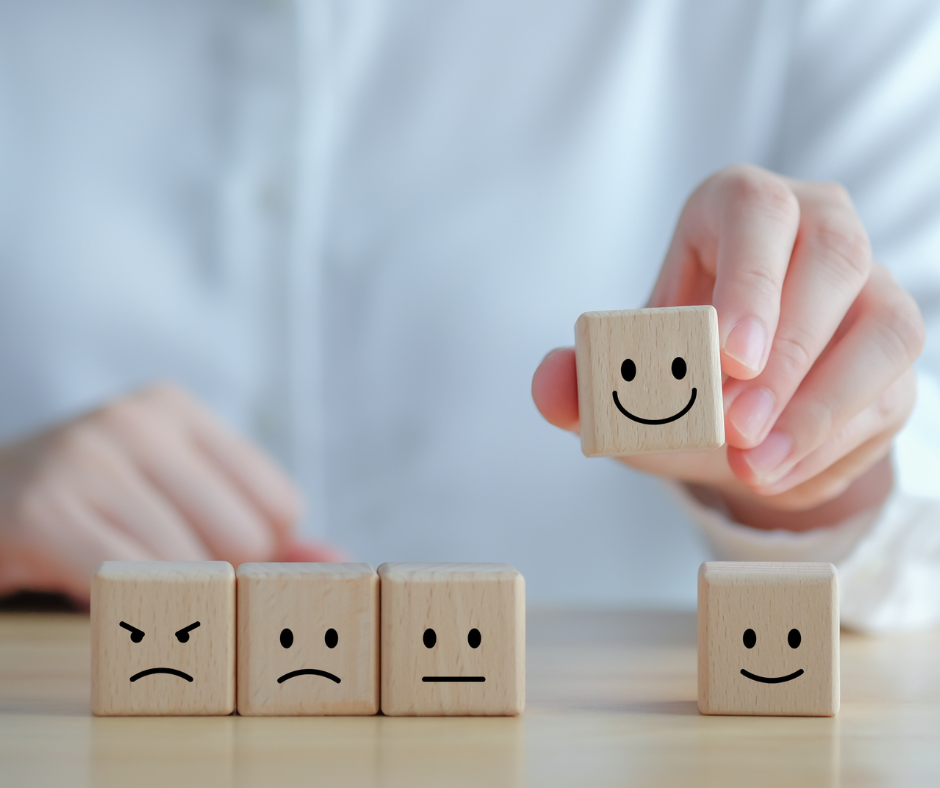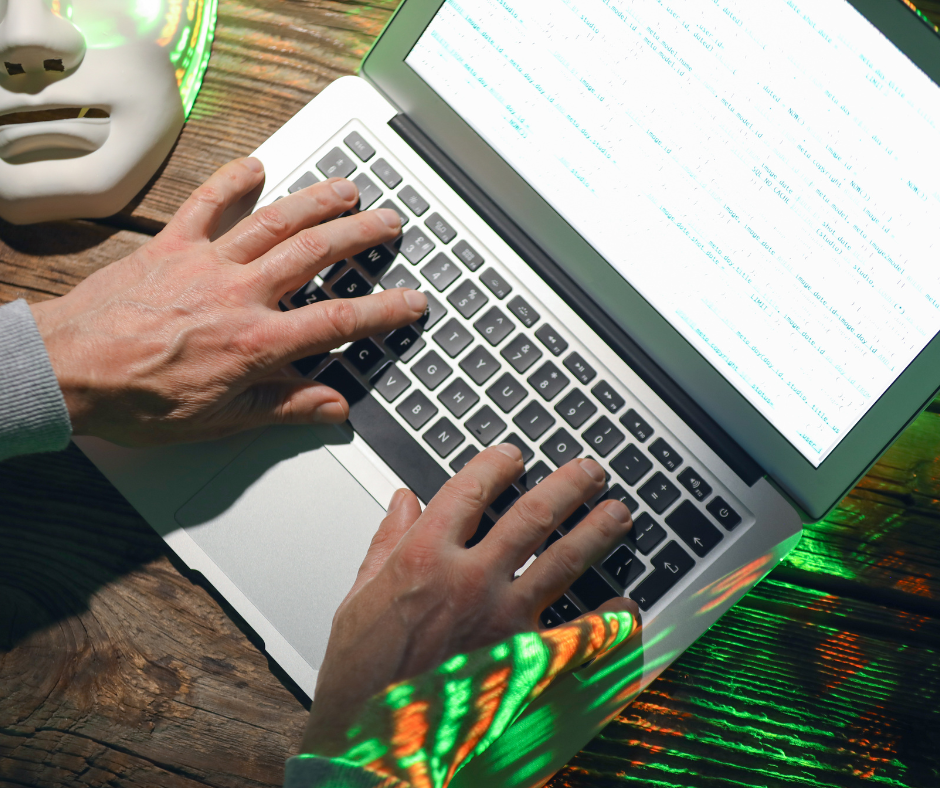
Mental Health in Cybersecurity
As we recognise World Mental Health Day, it’s essential to highlight the often-overlooked connection between mental health in cybersecurity . While mental well-being is a priority across all professions, the unique pressures faced by those in cybersecurity can significantly affect their mental health. Cybersecurity professionals must remain constantly vigilant, adapting to rapidly evolving threats, often without downtime.
In this piece, we sit down with Ross Palmer, CEO of Enterprise Defence, to discuss the mental health challenges within the cybersecurity field, how the company supports its staff, and practical tips for managing stress and staying resilient.
The Pressure of Cybersecurity Work
Cybersecurity is a high-stakes environment. Every decision can have serious consequences for the safety and security of an organisation. From the possibility of data breaches to ransomware attacks, cybersecurity professionals are on the front lines of digital defence.
Ross Palmer sheds light on some of the key pressures cybersecurity teams face:
“Cybersecurity roles come with an incredible amount of responsibility. You’re not just protecting data; you’re often protecting the future of entire businesses. This pressure is heightened by the fact that the threats are constant. There’s no time to relax when you’re always on guard.”
Beyond external threats, internal expectations and the speed at which technology evolves demand continuous learning, leaving little time to rest or disconnect.


The Impact on Mental Health in Cybersecurity
With such intense pressure, mental health can suffer. Long hours, the constant threat of cyberattacks, and the fear of missing a critical vulnerability can lead to chronic stress, burnout, and even anxiety. A 2023 Gartner report stated that nearly half of cybersecurity leaders are considering switching jobs in the next two years, with a quarter leaving the industry entirely. These staggering numbers reflect just how challenging the work can be, and how the mental health toll is forcing many to rethink their career paths.
Ross Palmer acknowledges the toll this environment can take:
“Cybersecurity is a tough field mentally. Our teams are solving complex problems every day, and there’s the added weight of knowing that any mistake could lead to significant consequences. This stress, if not managed, can really affect their mental health.”
How Enterprise Defence Supports Cybersecurity Professionals
At Enterprise Defence, the well-being of staff is a priority. The company has implemented several strategies to ensure that cybersecurity professionals are supported both mentally and emotionally, recognising that a healthy team is essential for effective security operations.
- Encourage Manageable Workloads: “We ensure our teams are not overloaded. The constant pressure to be on high alert can lead to fatigue. It’s important to allocate tasks in a way that allows for balance.”
- Promote Mental Health Resources: “We provide access to counseling services and stress management workshops. Having the space to talk about what they’re experiencing helps the team manage the pressure better.”
- Foster Work-Life Balance: “In cybersecurity, it’s easy to feel like you need to be available 24/7. We encourage our employees to disconnect after hours and take time off to recharge, especially following intense projects.”
- Offer Continuous Professional Development: “Staying current with evolving threats is vital, but the constant learning curve can be stressful. We provide training that’s scheduled in a way that doesn’t overwhelm.”
- Treat Days and Free Coffee/Tea Facilities: “We understand the importance of small gestures in maintaining morale and reducing stress. That’s why we offer treat days and provide free coffee and tea facilities for staff. These perks create a relaxed atmosphere where employees can recharge throughout the day.”
- Team Collaboration and Support: “We emphasise a strong team culture where no one feels isolated. In cybersecurity, it’s easy to feel like you’re fighting battles alone. We make sure our teams communicate regularly, share their challenges, and support each other.”
A Personal Note from Ross Palmer
As a leader in the cybersecurity industry, Ross understands the importance of maintaining his own mental health. Balancing the pressures of leadership with the responsibility of supporting his team is a constant effort.
“I’ve learned that you can’t pour from an empty cup. For me, it’s about carving out time for activities that help me de-stress, whether it’s exercise or simply taking time to disconnect from the digital world. Mental health in cybersecurity isn’t just about surviving the stress—it’s about thriving in this demanding environment by building resilience.”
Ross emphasises the need for a supportive company culture where mental health isn’t just an afterthought but a central focus:
“We make it a priority to create an open dialogue about mental health. No one should feel that talking about stress or burnout is a weakness. By fostering that kind of culture, we ensure our team members feel supported.”


Tips for Protecting Your Mental Health in Cybersecurity
While it’s crucial for organisations to provide support, cybersecurity professionals must also take steps to protect their own mental health. Here are some practical tips to manage stress and avoid burnout:
- Set Boundaries: Create clear boundaries between work and personal life. Cybersecurity often demands after-hours attention, but ensuring time for relaxation and personal activities is vital to avoid burnout.
- Take Breaks: Regular breaks throughout the day can help prevent mental fatigue. Step away from your screen, go for a walk, or engage in a non-work-related activity to recharge.
- Practice Mindfulness and Relaxation Techniques: Incorporating mindfulness exercises, meditation, or deep-breathing techniques into your daily routine can reduce stress and improve focus.
- Communicate with Your Team: Openly share your challenges with your colleagues or supervisors to lighten the workload or explore practical solutions.
- Use Automation Wisely: Leverage automation tools to manage repetitive tasks, allowing you to focus on higher-priority work, reducing overall stress.
- Seek Professional Help When Needed: Don’t hesitate to seek counseling or therapy if you’re feeling persistently stressed or anxious. Mental health professionals can offer valuable strategies to cope with workplace challenges.
Enterprise Defence’s Commitment to Mental Health
At Enterprise Defence, we believe that the mental health of our cybersecurity professionals is just as important as the systems they protect. Ross Palmer reflects on the company’s commitment:
“Our staff are our greatest asset, and we’re committed to supporting them both professionally and personally. By fostering an environment where mental health is prioritised, we’re ensuring that our cybersecurity teams are resilient, focused, and ready to tackle any challenge.”
Through flexible working conditions, mental health resources, and a supportive work culture, Enterprise Defence is leading the way in prioritising employee well-being.
Looking Ahead
As cybersecurity threats continue to grow in complexity and frequency, the demand on professionals in this field will only increase. But burnout doesn’t have to be inevitable. By creating a supportive, balanced work environment and providing mental health resources, organisations like Enterprise Defence are leading the charge in protecting both data and the people who safeguard it.
On this World Mental Health Day, let’s remember that cybersecurity isn’t just about defending networks—it’s about defending the defenders.
